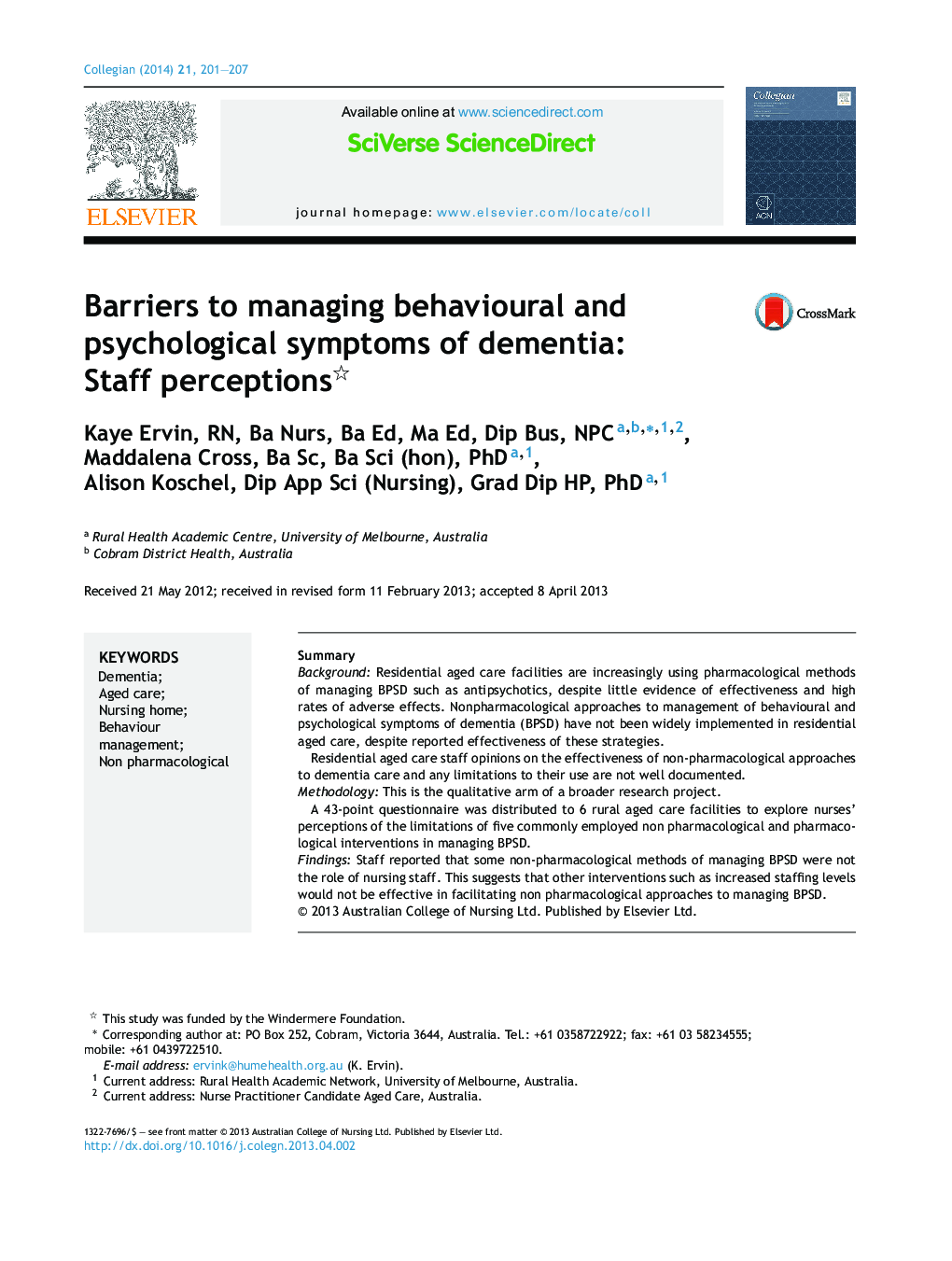| کد مقاله | کد نشریه | سال انتشار | مقاله انگلیسی | نسخه تمام متن |
|---|---|---|---|---|
| 2646852 | 1138925 | 2014 | 7 صفحه PDF | دانلود رایگان |
SummaryBackgroundResidential aged care facilities are increasingly using pharmacological methods of managing BPSD such as antipsychotics, despite little evidence of effectiveness and high rates of adverse effects. Nonpharmacological approaches to management of behavioural and psychological symptoms of dementia (BPSD) have not been widely implemented in residential aged care, despite reported effectiveness of these strategies.Residential aged care staff opinions on the effectiveness of non-pharmacological approaches to dementia care and any limitations to their use are not well documented.MethodologyThis is the qualitative arm of a broader research project.A 43-point questionnaire was distributed to 6 rural aged care facilities to explore nurses’ perceptions of the limitations of five commonly employed non pharmacological and pharmacological interventions in managing BPSD.FindingsStaff reported that some non-pharmacological methods of managing BPSD were not the role of nursing staff. This suggests that other interventions such as increased staffing levels would not be effective in facilitating non pharmacological approaches to managing BPSD.
Journal: Collegian - Volume 21, Issue 3, September 2014, Pages 201–207
